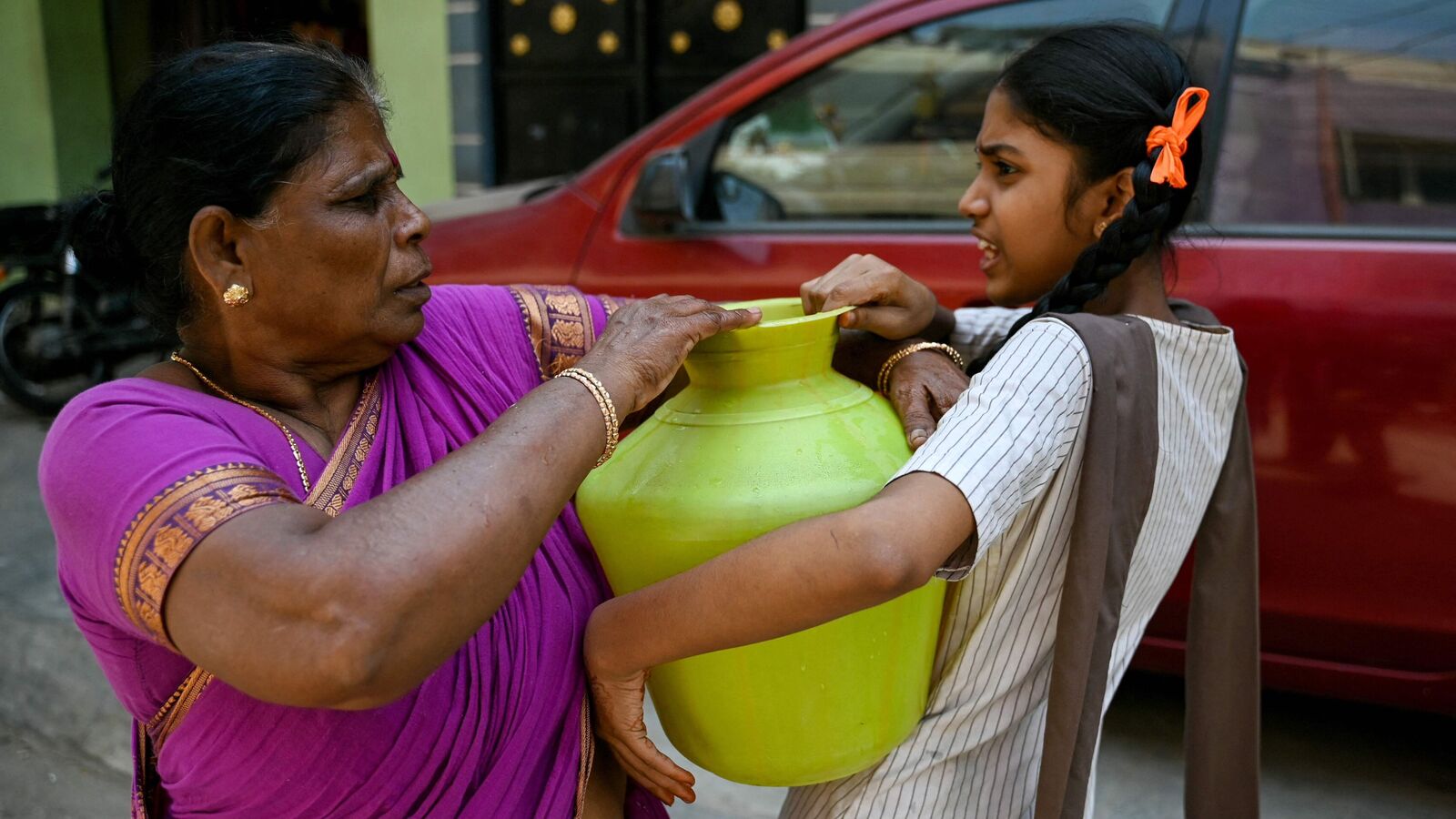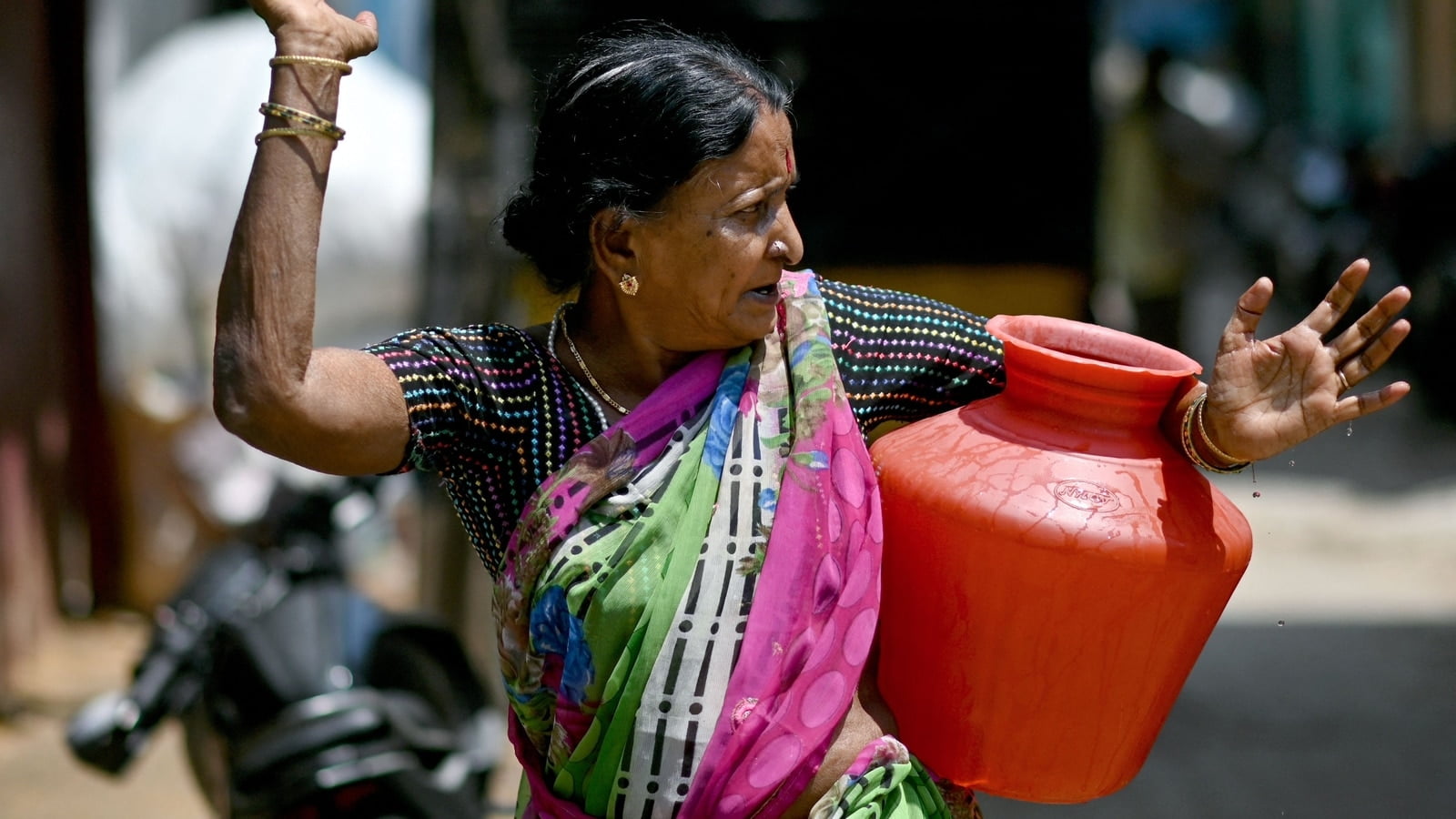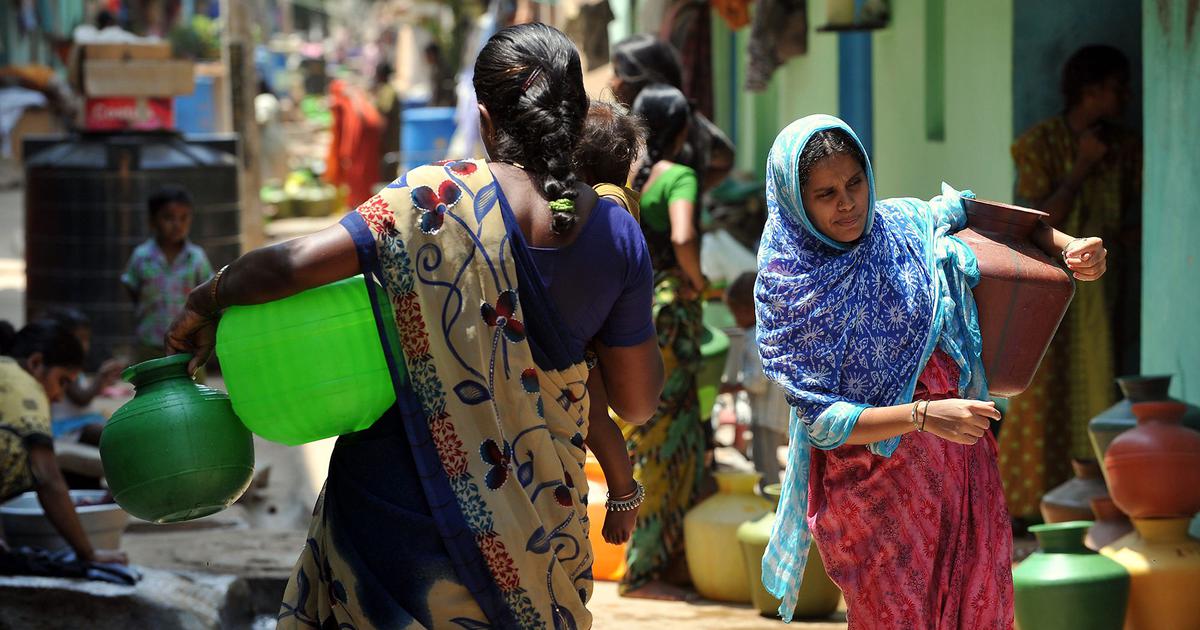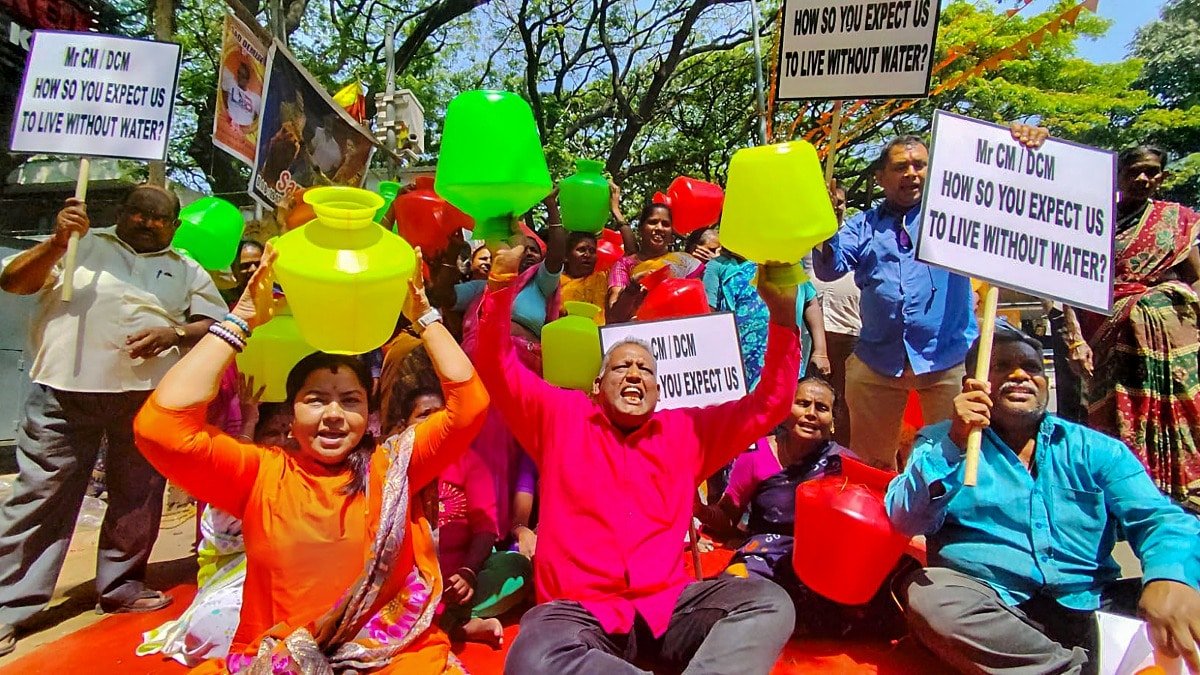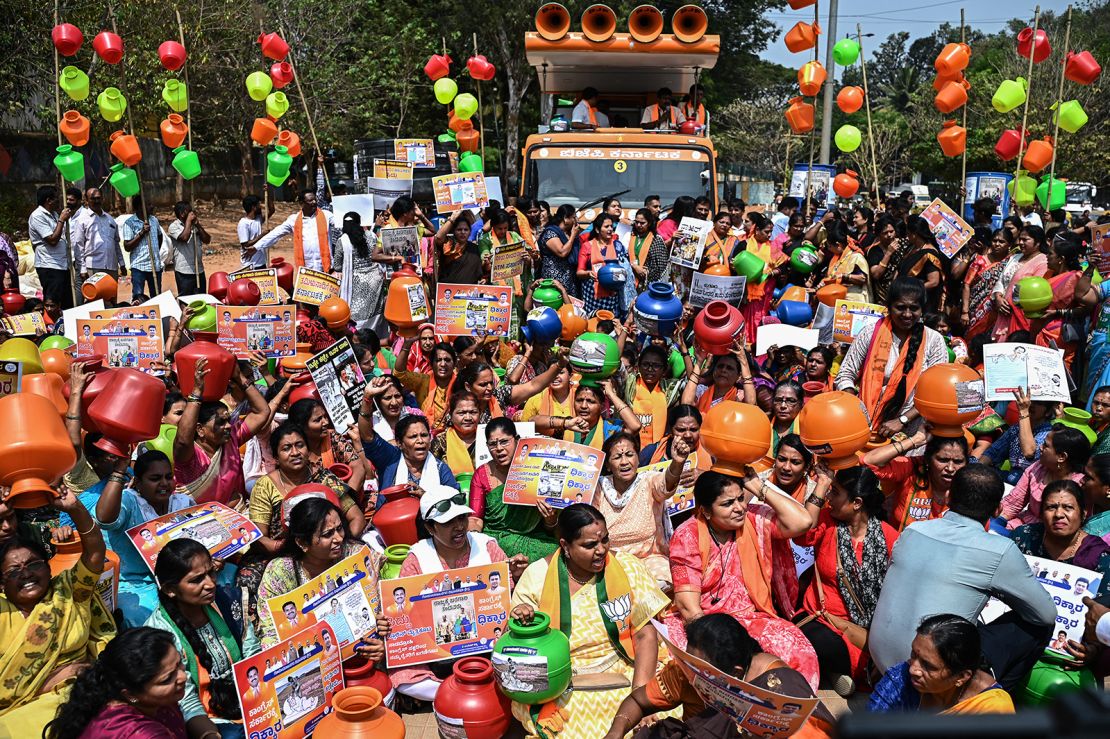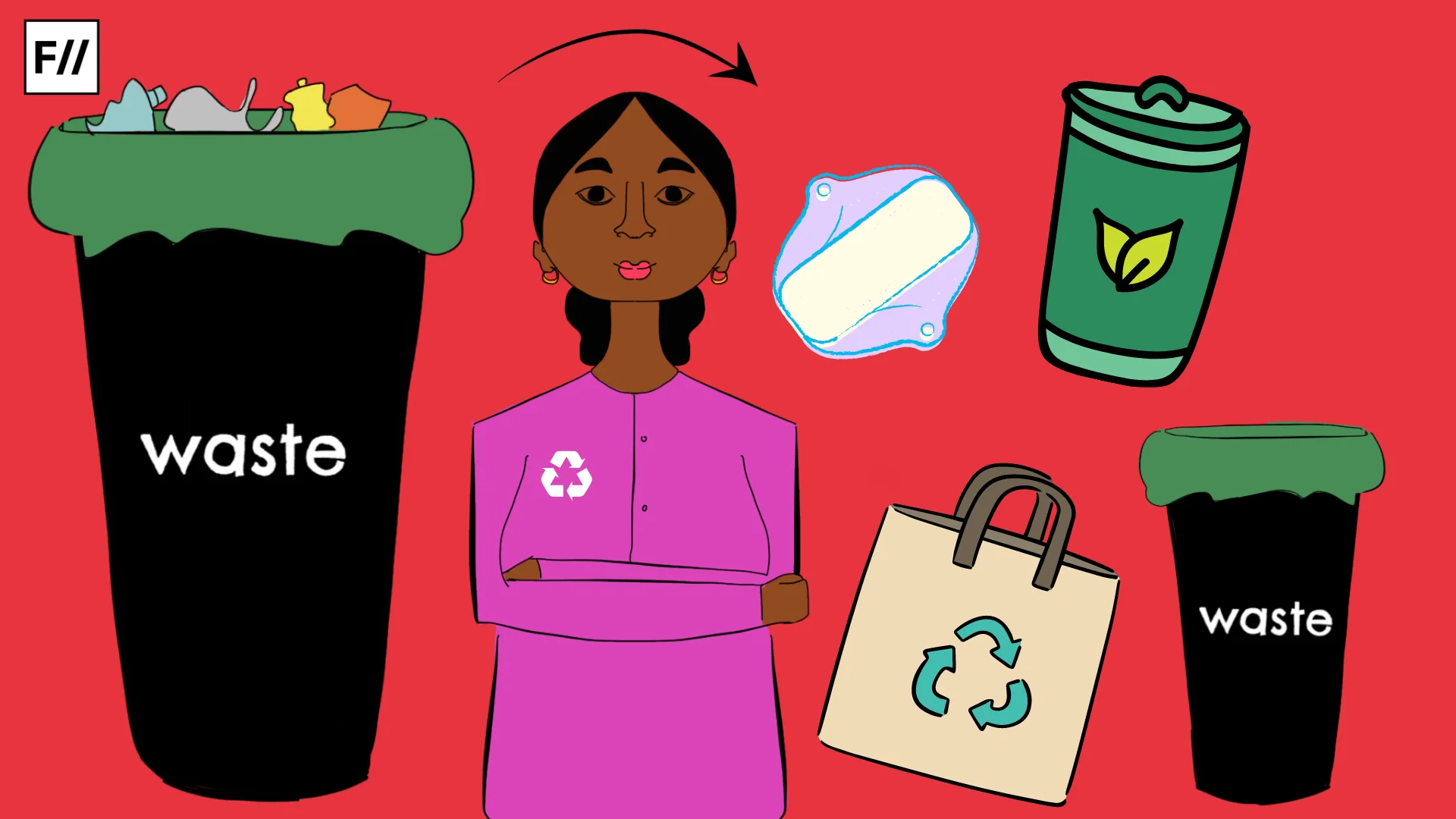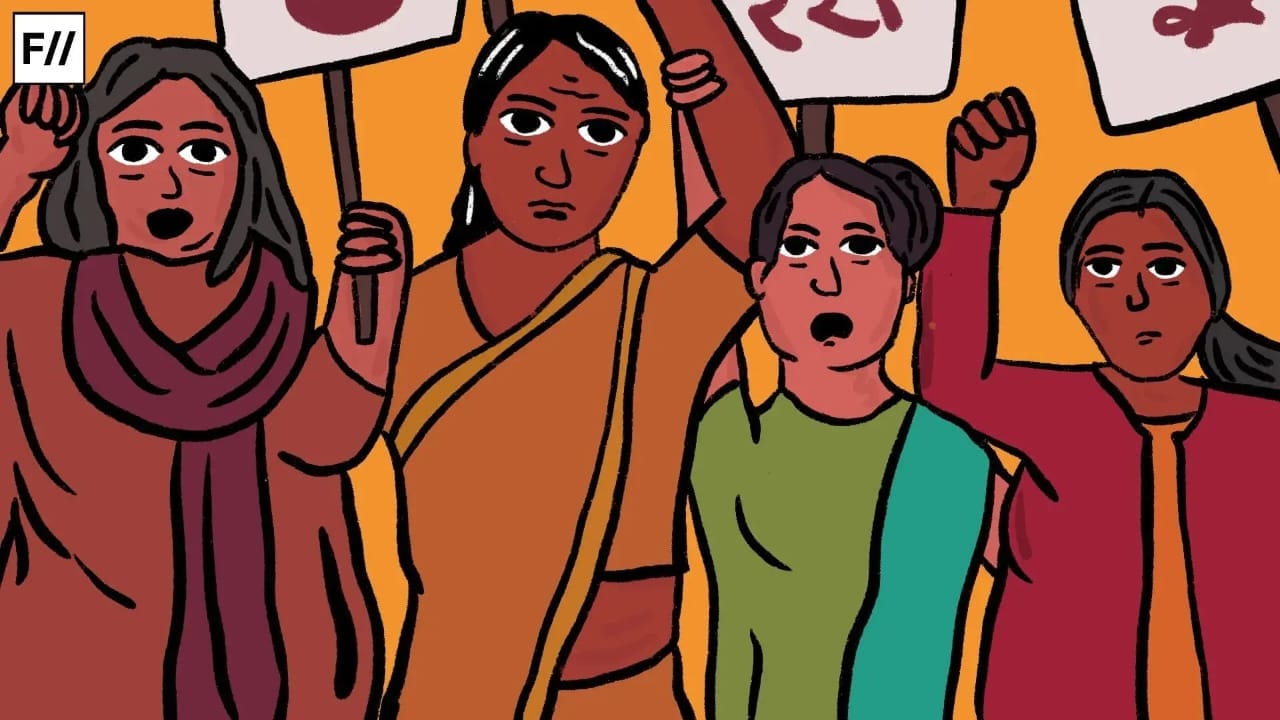Amidst the glimmering tech parks and rising skyscrapers, the scarcity of water has become a haunting reality in the bustling streets of Bengaluru, a crisis that has been silently unfolding recently. As summer’s scorch approaches, the city braces for a drought-driven ordeal, with underground reserves dwindling and the Cauvery basin parched. Yet, amidst this unfolding saga, a poignant truth emerges—women, particularly from marginalised backgrounds, bear the brunt of this water crisis. Their pursuit of water security is riddled with peril, from health woes to safety risks, as they shoulder the burden of heavy containers and endure the weight of inequality.
Fueled by rapid urbanisation, population growth, and mismanagement of water resources, Bengaluru’s water crisis has become a complex issue.
Fueled by rapid urbanisation, population growth, and mismanagement of water resources, Bengaluru’s water crisis has become a complex issue. As water sources diminish and groundwater levels decline, access to clean water becomes increasingly scarce. In this battle for survival, it is the women of Bengaluru who are thrust to the forefront, especially in patriarchal communities. They are entrusted with the daunting responsibility of procuring water for their families amid dwindling supplies and erratic distribution patterns.
How does it affect women?
In patriarchal societies, water scarcity exacerbates existing gender inequalities, with women disproportionately burdened by related responsibilities while having limited decision-making power over water management and resource allocation. Addressing these gender disparities in access and management is essential for achieving sustainable development and improving the overall well-being of communities affected by water scarcity.
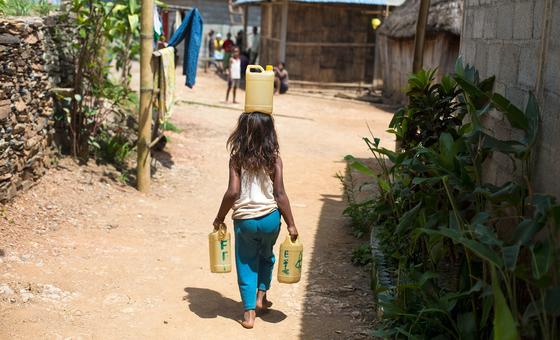
Beyond the physical toll, the crisis in Bengaluru takes a significant toll on women’s economic opportunities. With their days consumed by water collection duties, women are often unable to pursue education or employment outside the home, perpetuating cycles of poverty and dependency. For many, the struggle to secure water eclipses the pursuit of personal growth and economic empowerment, trapping them in a cycle of perpetual deprivation.
Furthermore, inadequate access to clean water jeopardises women’s health, particularly during menstruation and pregnancy. Lack of sanitation facilities and clean water exacerbates the risk of infections and reproductive health complications, undermining women’s well-being and perpetuating gender disparities in healthcare access.
How women bear the brunt of scarcity In urban areas
In urban areas grappling with water scarcity, women, particularly those who have migrated for work, face distinct challenges. With limited access to clean water, women often struggle to meet their basic needs, including sanitation, hygiene, and household tasks. The scarcity exacerbates their workload as they must expend additional time and energy sourcing water for daily use, further straining their already demanding schedules. Moreover, unreliable access to water disrupts their ability to maintain personal hygiene, impacting their health and well-being.
In urban areas, particularly for women, the inability to access bathroom facilities for basic toilet needs is not merely an inconvenience but a fundamental issue of human dignity and feminist rights.
In urban areas, particularly for women, the inability to access bathroom facilities for basic toilet needs is not merely an inconvenience but a fundamental issue of human dignity and feminist rights. Despite the widespread availability of clean and safe sanitation facilities often taken for granted, the lack of adequate access disproportionately affects women, shining a spotlight on enduring gender disparities in our communities. In navigating urban spaces, women face the harsh reality of absent public restrooms, thrust into a world where their basic bodily needs are neglected, perpetuating feelings of discomfort, anxiety, and shame.
This denial of a basic human right reinforces patriarchal norms that curtail women’s mobility and autonomy, ultimately constraining their engagement in public life and economic opportunities. From a feminist standpoint, addressing this challenge goes beyond providing mere access to toilets; it necessitates a concerted effort to confront systemic inequalities that deprive women of their rightful dignity and agency in navigating the world.
Furthermore, water scarcity in urban settings can perpetuate social and economic inequalities among women. Those employed in low-wage sectors, such as domestic work or informal labour, may face even greater difficulties as they contend with erratic water availability both at home and in their workplaces.
Analysing how women’s livelihoods are put under pressure
Water scarcity imposes significant economic implications on women, placing their livelihoods under immense pressure. The time and energy spent on chores not only detract from potential income-generating activities but also perpetuate a cycle of poverty. With limited access to water, women may struggle to maintain small-scale businesses or agricultural ventures, further limiting their economic mobility and exacerbating existing financial vulnerabilities. Additionally, the reliance of certain industries on water for production processes means that female workers within these sectors face heightened job insecurity and reduced earning potential during water shortages.
Furthermore, the economic implications of such a scarcity extend beyond immediate livelihood concerns. In many cases, women are forced to make difficult decisions about household expenditures, often prioritising basic needs such as food and shelter over investments in education or healthcare. This prioritisation can have long-term consequences, limiting opportunities for personal development and perpetuating intergenerational cycles of poverty.
Moreover, the economic burden of water scarcity disproportionately affects marginalised women, including those from low-income households or rural communities. These women often lack access to alternative sources or technologies that could mitigate the impact of scarcity, leaving them particularly vulnerable to the economic shocks caused by such shortages.
In essence, water scarcity not only threatens women’s immediate livelihoods but also undermines their long-term economic prospects and perpetuates systemic inequalities. Addressing the economic implications of scarcity requires holistic approaches that prioritise gender equality, sustainable water management, and inclusive economic development.
Water scarcity’s toll on schools hindering educational opportunities
The recent reports show how the crisis has even cast its shadow over educational institutions, with schools like Abheek Academy on Bannerghatta Road forced to temporarily close due to water scarcity. This predicament underscores the far-reaching impacts of such a scarcity on schools, affecting essential functions such as access to clean water for drinking, sanitation, and hygiene purposes. The lack of adequate water supply not only compromises the health and well-being of students and staff but also raises concerns about the spread of waterborne diseases, posing a significant risk to public health.
The recent reports show how the crisis has even cast its shadow over educational institutions, with schools like Abheek Academy on Bannerghatta Road forced to temporarily close due to water scarcity.
Moreover, closures due to water scarcity exacerbate educational inequalities, disproportionately affecting vulnerable students who rely on schools for meals and access to clean water. Interruptions to learning widen existing achievement gaps, particularly for students from disadvantaged backgrounds, emphasising the urgent need for comprehensive solutions to address water scarcity in Bengaluru’s education system.
How to tackle the situation caused by the water crisis?
With various sectors reeling under severe shortages, exacerbated by the glaring gap between demand and supply, urgent action is imperative. To effectively address this crisis, a holistic approach is required, tackling not only the immediate water shortage but also the underlying factors contributing to it.
The water shortage in the city has taken its toll on various sectors, affecting large apartment complexes, gated communities, government and private schools, fire departments, as well as hotels and restaurants. According to a recent report, these establishments are grappling with severe shortages exacerbated by the glaring gap between demand and supply whereas the experts attribute this dire situation to a combination of factors, including the depletion of groundwater reserves, limited access to Bangalore Water Supply and Sewerage Board (BWSSB) connections, and inefficiencies within the water management system.
Unfortunately, the burden of water collection falls disproportionately on women, constraining their mobility and limiting their opportunities for personal and professional advancement. Overall, addressing the specific challenges faced by urban women in accessing water is crucial and a pressing issue for promoting gender equality and inclusive development in urban areas.
Overall, addressing the specific challenges faced by urban women in accessing water is crucial and a pressing issue for promoting gender equality and inclusive development in urban areas.
Furthermore, addressing the gender disparity in access is paramount. Empowering women through education, training, and participation in decision-making processes can help alleviate the disproportionate burden of collection and management. Providing access to affordable and efficient technologies, such as water purification systems and efficient storage solutions, can also empower women to better manage water resources within their households and communities.
Ultimately, addressing water scarcity and gender inequality in urban areas requires collaborative efforts from government agencies, civil society organisations, private sector stakeholders, and the community at large. Only by working together to implement holistic solutions can a possible bridging of the gap happen, ensuring equitable access to clean water and fostering inclusive development in our cities.
